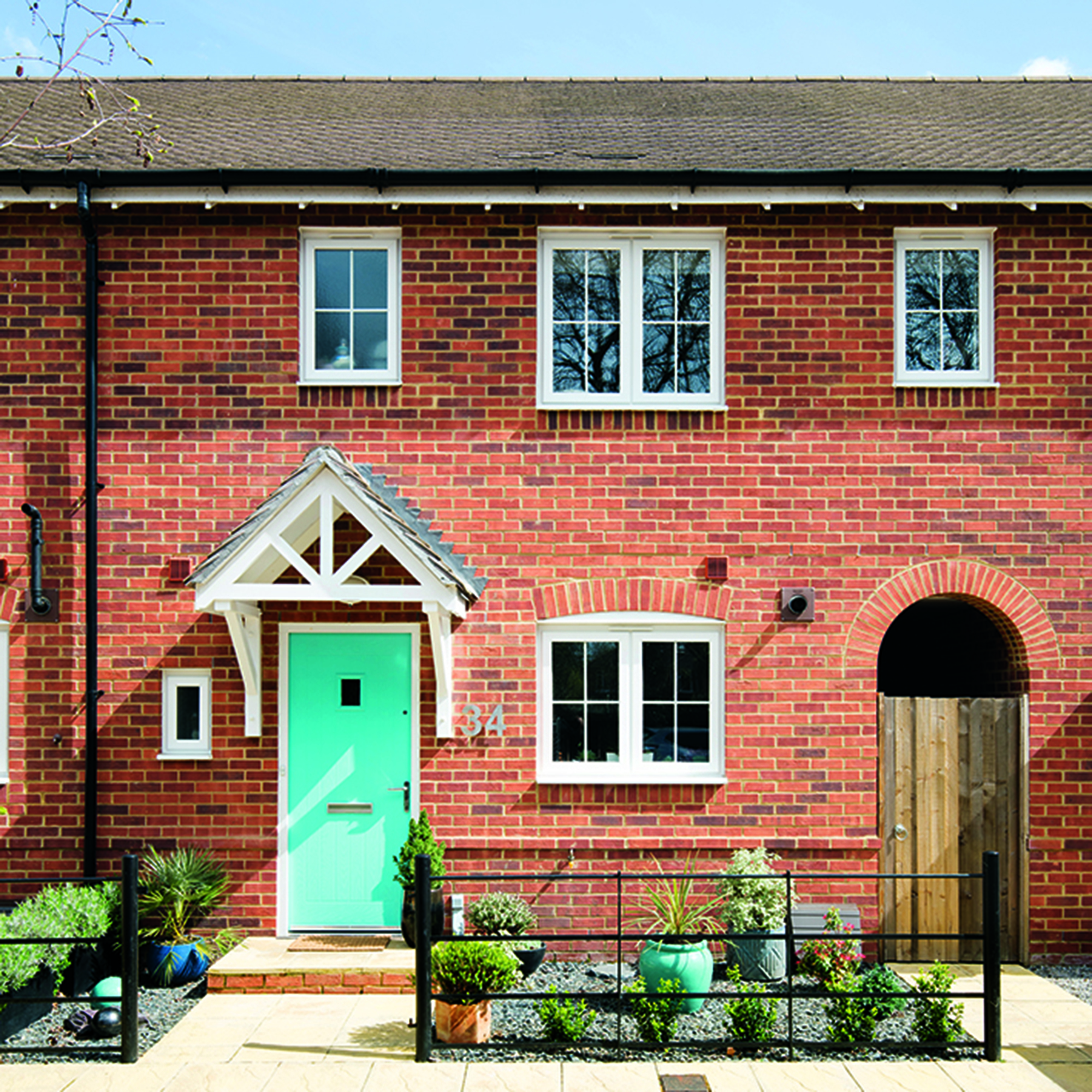Selling a house privately? Here’s what you need to know
Here's what to weigh up if you’re considering going down this route
Sign up to our newsletter for style inspiration, real homes, project and garden advice and shopping know-how
You are now subscribed
Your newsletter sign-up was successful
Putting your house on the market can be an expensive (and stressful!) process. And estate agent fees are a big factor in the cost of moving house. So it makes sense that this is the reason some people choose to go it alone by selling a house privately.
Why it may seem appealing, selling your home privately isn’t a completely straightforward process. It’s important to have a full understanding of what you’re getting into before going ahead.
What does selling a house privately mean?
Put simply, selling a house privately means selling your home directly to a buyer without the help of an estate agent. Estate agent's fees can be thousands of pounds and that’s a lot of cash back in your pocket if you cut them out of the process.
Selling privately generally works better in a buoyant market when you're more likely to sell your home quickly, and at a good price. It can also be a good option if you already know someone who's interested in buying your house.

Is a private sale cheaper and will I get a better deal?
Although selling your home privately can save you thousands in estate agent's fees, going it alone doesn’t necessarily mean you’ll get the best price for your property. Plus there are marketing costs you may still have to pay out for.
‘The average homeowner will save around £3,200 on estate agent’s fees,’ explains Jonathan Rolande from House Buy Fast. ‘However, private individuals can't advertise on portals like Rightmove or Zoopla, so you could miss out on thousands of potential buyers. Fewer buyers usually means lower offers – likely a lot lower than the £3,200 saved.’
How much work is involved in selling my house privately?

If you are thinking about selling your home yourself, you’ll need to be organised. You have to dedicate a lot of time to advertising the property. It's important to create a floor plan and a room-by-room guide when you market your home. Getting your house valuation right is also key.
Sign up to our newsletter for style inspiration, real homes, project and garden advice and shopping know-how
‘You’ll need professional standard photos, a legally compliant description and adverts, a valid Energy Performance Certificate (EPC). And you’ll have to field all of the calls and carry out the viewings,’ says Jonathan. All of this can be tricky to manage alongside work and family commitments. Be realistic about the time you have available.
You'll also need to be prepared to deal with any difficult conversations or negotiations with buyers along the way. ‘It doesn’t matter how skilled a negotiator you might be. When it comes to dealing with your personal assets and making decisions involving your family it’s impossible not to get emotionally invested,’ says Clare Andrews, residential property partner at Moore Barlow. ‘Without an agent, the transaction can be more stressful than it needs to be.’
Keep in mind that you should still use a solicitor or conveyancer to help you with the legal work involved. This includes work such as the freehold or leasehold documents and the property title deeds.
What are the pros and cons of selling your home privately?
Advantages of selling a house privately:
- The amount you’ll save in estate agent fees.
- Being able to handle house viewings yourself,. You may feel you can represent your home better than an estate agent could.

Disadvantages of selling a house privately:
- Setting a fair asking price for your home can be difficult and you’ll need to do your research. The HomeOwners Alliance offers a free valuation service to give you an idea of how much your home is worth.
- Getting buyers through the door can be a challenge. Be prepared to lower your asking price if necessary.
- Going it alone also increases the risk of being exposed to fraudsters. ‘Once you take an offer, will you know how to screen the buyer to ensure they are genuine?’ asks Jonathan.
You need to weigh up the benefits of a private sale against the downsides, before coming to a decision about whether it's the right route for you.
Is it worth doing?
Selling a house privately can work brilliantly for some people. This is especially true when the property market is booming or if someone has already expressed an interest in buying the property. But it can be extremely time-consuming and stressful, so it isn't right for everyone. You have to ask yourself are estate agents worth it?
‘Ultimately, estate agents can help to overcome any bumps in the road, making the sometimes challenging and difficult process of moving home a smooth process for you and your family,’ says Dan Copley, consumer expert at Zoopla.
An alternative option – a compromise between the two – is to use an online estate agent, such as Yopa or Purple Bricks. These online agents are much cheaper than traditional high street estate agents (because they have less overheads), but they can also help you with advertising and property viewings, making the process of selling your home a little easier to manage.